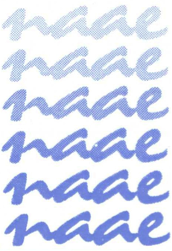Submissions
Organisations and individuals have been invited to comment on these five pillars of a new National Cultural Policy: First Nations, A Place for Every Story, the Centrality of the Artist, Strong Institutions and Reaching the Audience.
NAAE’s submission to the Quality Initial Teacher Education Review is informed by our members’ experiences and research as teachers, pre-service teacher educators working in universities, and as arts education stakeholders. … NAAE believes a key factor in achieving educational success for all Australian students is the provision of quality learning experiences in The Arts at primary and secondary school.
This submission focuses on The Arts and provides general feedback about the proposed Australian Curriculum: The Arts. We note that most of our member national associations, and many state/territory associations have provided detailed responses.
Two prominent arts education researchers, Dr John Nicholas Saunders and Dr Linda Lorenza, have recently published papers highlighting the power of arts learning and the importance of principals’ own view of the arts.
Supporting professional creative arts training translates to an investment in a robust creative industry which makes a vital contribution to both Australia’s economy and to community social well-being as evidenced most recently during the COVID-19 pandemic.
The National Advocates for Arts Education (NAAE) opposes the Federal Government’s proposed university fees reforms and calls for an equitable tertiary education system that does not target creative arts degrees with increased fees on the basis that this area of study does not lead to employment.
The NAAE submission to the NSW Curriculum Review (December 2019) focuses on the five art forms of dance, drama, media arts, music and visual arts, asserting that ‘the structure of The Australian Curriculum: The Arts provides a clear scope and sequence for teachers to follow, thereby reducing the crowding and potential confusion currently evident in the NSW Creative Arts K–6 and Stages 4 and 5 syllabi for the arts.’
NAAE made a submission into the Review of the Melbourne Declaration. We noted that we hoped the revised version would ‘centralise The Arts in all children’s and young people’s learning, drawing on the extensive research showing that engagement through The Arts results in higher motivation and engagement with the subject matter being taught.’
We believe a key factor in achieving educational success for all Australian students is the provision of quality learning experiences in The Arts at primary and secondary school. And a growing body of Australian and International research unequivocally demonstrates the enormous benefits that The Arts (Dance, Drama, Media Arts, Music and Visual Art) can have on students’ academic and non-academic success.
To create a workforce that is both innovative and creative, we believe school education should be included as part of the focus of the inquiry, with emphasis on senior schooling as a direct articulation into the tertiary environment. Curriculum and pedagogy in schools will inform the extent to which students are graduating from tertiary courses with the skills needed for the jobs of today and for the future.










